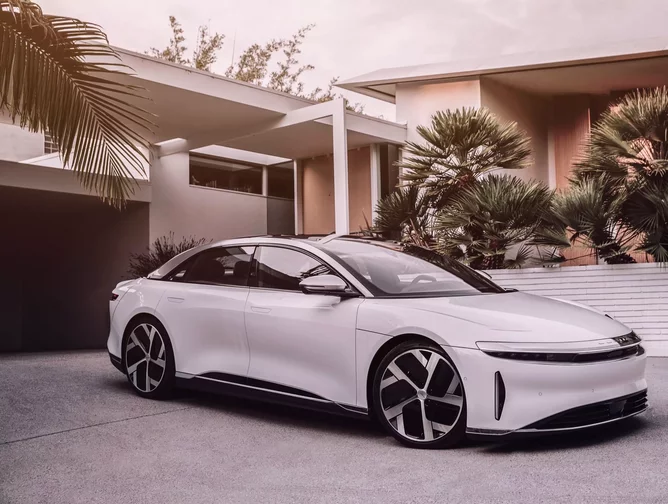Lucid Motors: bridging the EV gap with increased EPA range

With many new brands appearing in the automotive market, the shift to renewable energy and electric vehicles (EVs) has opened up the competition for diversified businesses to take on the automotive giants.
Lucid Motors, a subsidiary of Lucid Group Inc., was founded in 2007. The US-based company builds electric vehicles for the luxury car market but has also applied its technical expertise to energy storage and the manufacture of bespoke equipment.
Addressing the important EV development challenges
Lucid Motors has been labelled the ‘range king’, which is one of the major concerns for consumers looking to convert from fuel-powered motoring to an EV. The latest model to be released by the company has an official EPA range of up to 520 miles on one charge and takes approximately 20 minutes to charge up to a 300-mile capacity. This comes as no surprise as the company promotes the car as a fast-charging luxury electric vehicle.
Sustainable luxury motoring
The group’s latest model, the Lucid Air is intricately designed for aerodynamics, which has resulted in such a high EPA range, but the company has also turned sustainable materials into luxury. The materials used for its plush interior are sourced responsibly, with the upholstery comprised of textiles like alpaca wool, recycled yarn and other textiles. The design also incorporates carbon-neutral wood features that are created using sustainability harvested Silvered Eucalyptus, North American Walnut and Carbon Oak.

The company believes that encouraging the best use of materials is just as important as building in zero-emissions technology and creating applications for renewably sourced energy. However, the Lucid Air model is still leading the charge when considering its German, British and American competitors, with an average of 4.6 miles per kWh of battery.
For more electric vehicle insights, check out the latest issue of Energy Digital Magazine.






